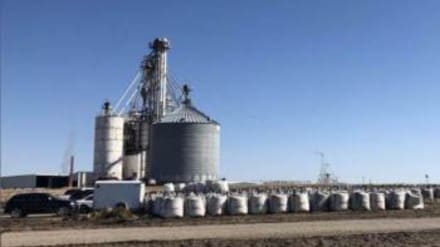A day after the government directed sugar mills to stop using cane juice for production of ethanol for the 2023-24 season, petroleum secretary Pankaj Jain said on Friday that it is just a ‘temporary’ pause in the programme for blending the biofuel with petrol for the auto industry, and the same would be reviewed periodically.
He asserted that there would not be any dilution in the ethanol blending programme, which aims at achieving 20% bio-fuel blending in petrol by ethanol supply years (ESY) 2025-26.
Apart from reviewing the supply of sugar on a regular basis, the government will also push ethanol production from other feedstocks, particularly maize. “Plans to boost maize production as well as its supply to ethanol manufacturers are already afoot”, he said.
Under a plan approved, the farmers cooperative Nafed and National Cooperative Consumers Federation (NCCF) will purchase maize from the farmers at the Minimum Support Price (MSP) and supply to companies for ethanol production.
The agriculture ministry is currently working with Indian Institute of Maize Research, Punjab to boost maize production through developing high yielding varieties which has higher recovery for ethanol.
The maize output is estimated at 38 million tonne (MT) in the 2022-23 crop year (July-June) and about 60% of the output is used as poultry feed.
In ESY 2022-23, the country has achieved 12% ethanol blending in petrol by production of 5 billion litres of ethanol. The target for blending aim for ESY 2023-24 is 15% per cent, for which the oil marketing companies (OMCs) would need to acquire around 7 billion litres of ethanol.
According to industry sources, around 25% of ethanol is produced from sugarcane juice and sugar syrup, while around 45% comes from B-heavy molasses–a sugar processing byproduct with substantial sugar content. Around 25% of ethanol is produced from the grain based sources.
The Union food ministry on Thursday directed all sugar mills and distilleries to stop using sugarcane juice for production of ethanol for 2023-24 season, in order to ensure adequate supply of sweetener for domestic consumption, and prevent any hike in its retail prices.
This move is expected to release 1.8-2 million tonne (MT) of sugar additionally in the domestic market which would help curb rise in prices amidst reports of fall in sweetener output in Maharashtra and Karnataka this season.
Food Secretary Sanjeev Chopra said that there are reports of losses in sugar production in the range of 20%-40% in Karnataka and Maharashtra.
Meanwhile, India Sugar Mills Association (ISMA) in a statement said that because of this pause in supply, the crushing capacity of sugar mills will come down drastically leading to delay of the crushing season resulting in loss, not only to mills but more to farmers, whose payments get stretched.
To maintain continuity of ethanol supply for the petrol blending program, it suggests allowing the conversion of the remaining contracted or cancelled juice quantity to B-heavy molasses. “This will provide the oil marketing companies with additional ethanol without significantly affecting sugar production,” it stated.
To mitigate potential delays or defaults in farmer payments due to reduced ethanol production from juice and syrup, the sugar manufacturers association proposes a compensatory increase in pricing for ethanol derived from B and C heavy molasses which would ensure sufficient cash flow for sugar mills.
